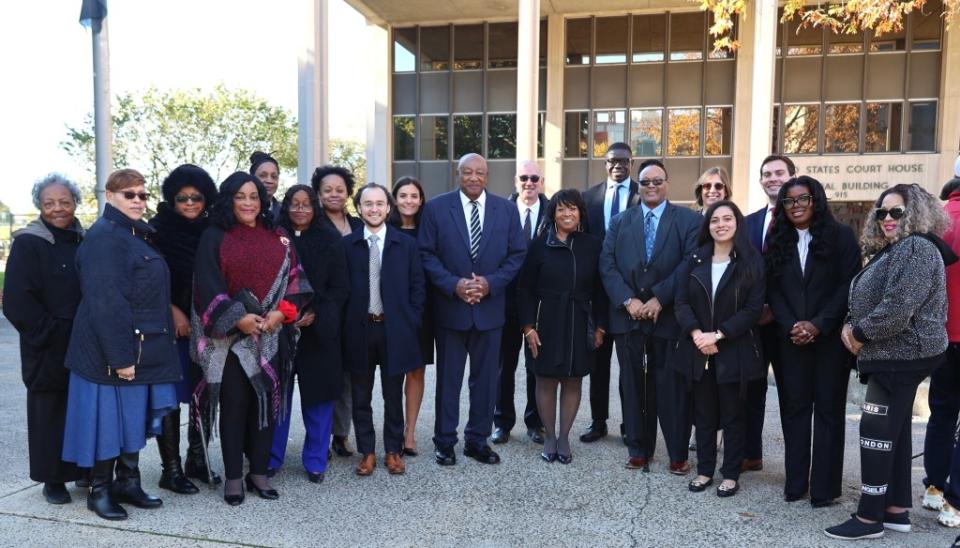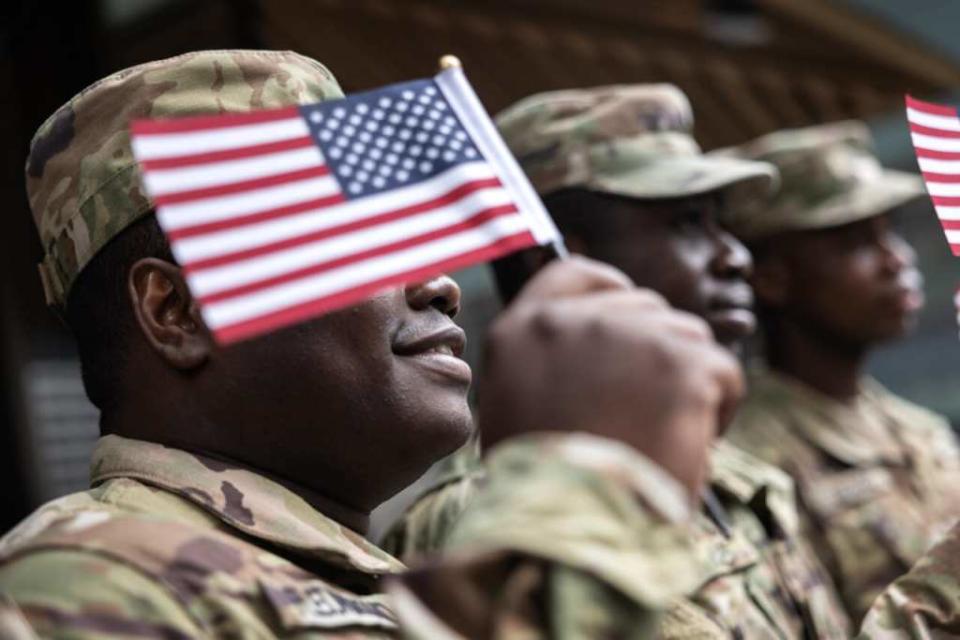Racial discrimination lawsuit against VA could be watershed moment for Black veterans

Conley Monk Jr., a Vietnam War veteran accusing the Department of Veterans Affairs of denying benefits for decades, hopes other Black veterans will join him in a potential class-action lawsuit.
A first-of-its-kind racial discrimination lawsuit against the U.S. Department of Veterans Affairs has the potential to set the course of justice for generations of Black veterans.
Last month, a federal judge in Connecticut ruled against the federal government in its attempt to dismiss the suit filed by Marine Corps veteran Conley Monk Jr., who accused the VA of denying him and his deceased father, Conley Monk Sr., benefits based on their race after they served in the Vietnam War and World War II, respectively.
The lawsuit argues that the Monks were denied unemployment compensation, along with education, home loan, and disability benefits, including for PTSD, as a result of the VA’s engaging in “systemic racial discrimination against Black veterans for decades.”
“It’s truly a blessing. I’ve been waiting for a long time for this,” Monk told theGrio after Judge Stefan R. Underhill’s consequential ruling. “I’m so glad that the courts decided to move forward with this case. It would truly bless me and my family and also other veterans.
Monk, who is suing on behalf of himself and the National Veterans Council for Legal Redress, a veterans services organization he founded in 1982, is bringing three claims against the VA under the Federal Torts Claims Act: negligence, negligent infliction of emotional distress, and negligent supervision. The suit alleges the Department of Veterans Affairs engaged in “tortious” conduct that caused “stigma, emotional distress [and] …. psychological, and dignitary harms.”
Monk told theGrio that navigating the VA for benefits has been a “nightmare” since he first attempted to access benefits in 1971, the year after he was discharged.
“I had to struggle to work two jobs in order to bring in income to support my family,” he said. “I’ve been totally discriminated against … I fought. I did what I was told to do. Then I came home and I was deprived.”
The legal complaint filed against the VA notes that while serving in the Marines, Monk experienced two PTSD “altercations” and was told he “could not depart until he agreed to an undesirable discharge.”

The complaint also points out that PTSD was not formally recognized by the American Psychiatric Association until 1980. Monk’s dishonorable discharge resulted in his denial of veteran benefits, including unemployment benefits from the state of Connecticut, because individuals with a dishonorable discharge are not considered veterans and, therefore, are ineligible.
Members of Monk’s legal team connect his case to a broader and systemic occurrence among Black veterans. They point out that in the 1970s, the Department of Defense determined that Black service members were “substantially more likely to face military disciplinary action.” Similar data was backed up by the Army and Equal Employment Opportunity Commission, according to the complaint.
Despite Monk’s repeated appeals to the VA to revise its 1971 discharge determination, he was denied.
The Monks’ historic case is a result of years-long efforts, including requests for the public release of government information and documents, led by the Black Veterans Project, a Black veterans advocacy group founded by Richard Brookshire, Zella Vanie and Daniele Anderson, in partnership with the Yale Law School Veterans Legal Services Clinic.
“We built basically a huge FOIA project that took about over a year to put together, and then we litigated it for almost two years,” Brookshire told theGrio, referring to the Freedom of Information Act. “We took all that data and those legal documents and internal VA documents and built a legal case for Monk v. United States.”
FOIA requests from the Black Veterans Project and Yale Law School produced data from an internal 2017 study conducted by the VA concluded that “[n]on-Hispanic Blacks have the lowest grant rate at 43% and are largest outlier in terms of grant rate.”
“The evidence that we’ve already put forward shows pretty compellingly decades of discrimination at VA,” Jared Hirschfield, a student with the Yale Law Veterans Legal Services Clinic, told theGrio.
Hirschfield said the Yale group will continue to file FOIA requests in order to gather data to build Monk’s case, which, with the Connecticut court’s ruling, can enter the discovery phase. The discovery process is expected to go on for as long as a year. Hirschfield called the facts of the case thus far “damning.”
“Unfortunately, I don’t think that his story is unique,” he said. “I think [Monk] deserves a ton of credit for putting his story out there and being the face of this, and hopefully in the process fixing this program for all Black veterans.”

Brookshire of the Black Veterans Project said the Monk case and its potential to reach class-action status is, at its core, a case for reparations.
“It provides an opportunity for the country to reckon with what is done to Black vets,” he told theGrio. “There hasn’t been an opportunity in a court of law for us to bring the history of benefit obstruction to the table and have it adjudicated on its merits, and in the case for reparations to be adjudicated on its merit.”
Experts say it would take more than $10 trillion to close the racial wealth gap. Brookshire said a “piece of that puzzle has been in accessibility to veteran benefits.” He argued that had Black veterans not been discriminated against for decades, “you would see more Black families in the middle class … with higher homeownership rates [and] the ability to pass those homes down to their children.”
He added, “You wouldn’t see the kind of statistics that you see affecting Black vets, [who are] twice as likely to live in poverty [and] represent a full 1/3 of the homeless veteran population.”
Monk told theGrio that it would be a “rewarding” feeling if his civil case allowed other Black veterans to access benefits and receive compensation for what they’ve lost over the years.
“We would like to let the Black veterans know that they have a voice. They need to get involved,” Monk told theGrio. “We’re going to continue to fight to make sure this gets out.”
Recommended Stories
The post Racial discrimination lawsuit against VA could be watershed moment for Black veterans appeared first on TheGrio.

